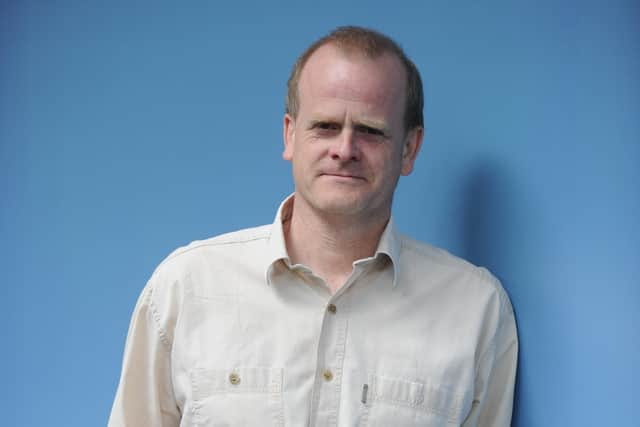Scotsman Obituaries: Tim Cornwell - An Appreciation


When I asked him if he would be interested in the post, which had just become vacant, he said he would “give it some thought”. He gave it a lot of thought, as much as a fortnight. When he eventually got back to me, he asked if the job might be a “marriage breaker”. I said, “Yes, it could be: this is The Scotsman”.
Such was his dedication to his family I knew that this would weigh on his mind. Through our daily phone briefings he would occasionally comment on his life in Los Angeles, how it would take four hours of the day to drive his daughters to riding school and back, because of the infernal traffic. It would be a big leap for his family to move from LA to Edinburgh.
Advertisement
Hide AdAdvertisement
Hide AdTo my delight, he accepted the post. At that point Tim, who was based in Los Angeles, had been one of the paper's top correspondents, covering Washington politics on a daily basis, but also the Columbine school killings, the Oklahoma bombings, Central American earthquakes, the murder of child beauty queen JonBenet Ramsey, which gripped the United States for weeks, and many offbeat stories. All were carefully crafted and always delivered on time.
After he and his family made the move, he seemed enchanted by Scotland. “My daughters are singing all the Corries' songs – do you like them, or are they too old hat for you?” he asked.
With his considerable knowledge of and interest in the arts, Edinburgh seemed tailor made for him.
At times it seemed that Tim was unsettled in his new post, missing the byline he was accustomed to, and grumbling why the foreign desk had to sometimes heavily rewrite the work of other correspondents, with no visible credit for the work that that entailed. “You're no longer in the field, Tim,” I told him. “An editor's job is a thankless one.” He took that with his usual wry smile and raising of his bushy ginger eyebrows, but he wouldn't let it go.
Anxious to get back in the field, he was soon on a potentially dangerous mission to FARC rebel territory in Colombia, bringing back T shirts of Manuel Marulanda, the FARC leader, for the foreign desk as souvenirs. When complimented on his work in Colombia, he said, “I couldn't have done it without help from my Dad and his contacts.” I told him it didn't matter how he had landed the story, “you were there and it's yours.”
He was clearly proud of his father, David Cornwell, better known as John Le Carré. I once asked him if his father was writing another book. He looked at me in disbelief and said, "He's always – always – writing a book!"
Tim was at odds with his father over the Iraq War. Indeed, David Cornwell, who rarely expressed his political views in public, had written scathing opinion pieces in the British media, attacking the Blair government over what he saw as an impending disaster, with repercussions to be felt across the world for many years. At the time Tim saw the war through an American lens, but later acknowledged that his father had been right.
Tim later left the foreign desk to work as arts correspondent. To me, it seemed an odd move to make for one who had been a foreign correspondent for so long, but the calling must have been strong.
Advertisement
Hide AdAdvertisement
Hide AdI last heard from Tim when he was at his father's house in Cornwall, where he and his partner Anna planned to stay. He was going through his father's letters, for a book to be published in October. “I feel in some ways the letters book has all the strands of my own disparate work in journalism,” he wrote.
After a difficult period in his life, he seemed to have found peace in Cornwall. “There's a serenity to the landscape, and the weather is raw, the blowing right at the house from the sea, no shelter to soften it.”
He was his father's son, perhaps more than he realised.
ANDREW MCLEOD
Scotsman foreign editor, 1990-2003
OBITUARIES
If you would like to submit an obituary (800-1000 words preferred, with jpeg image), or have a suggestion for a subject, contact [email protected]
SUBSCRIBE
Subscribe at www.scotsman.com/subscriptions
